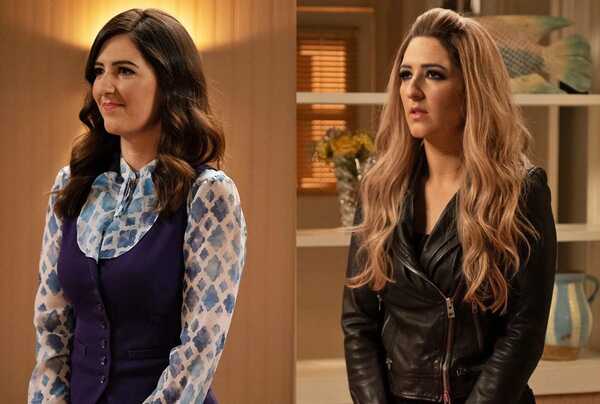Fat shaming in The Good Place
Content warning: discussion of fat shaming. I’m not going to spoil the plot of The Good Place, but I might spoil your enjoyment.
During quarantine, I’ve been rewatching The Good Place. I adore the show, the concept, and its characters – but watching the episodes all in a row, it’s obvious and grating how much it leans on “fat” as an insult.
The show is a sitcom set in the afterlife, which is divided into a “Good Place” and a “Bad Place”. All your actions on Earth are given a point score based on their morality, and only people with the highest scores get to go to the Good Place. Everyone else is condemned to an eternity of misery and torture in the Bad Place.

Within the Good Place, there’s an omnipotent, omniscient knowledge guide called Janet (played by D’Arcy Carden). She can answer any question about the universe and provide the residents with whatever they want. Her counterpart in the Bad Place is Bad Janet, who is obnoxious, offensive, and unhelpful (also played by D’Arcy Carden). Ask her a question, and you’ll get a fart or an insult in return.
Bad Janet’s go-to insult is “fat dink”, and I wince whenever I hear it.
I appreciate that they’re trying to show us that Bad Janet is a bad person, but she’s a television-friendly version of “bad”. Lots of insults that you’d hear in YouTube comments are unacceptable on TV. She never makes comments about somebody’s race, or gender, or sexuality – just “fat”.
And the comments feel gratuitous. The writers have lots of other ways to show that Bad Janet and her ilk are unpleasant, and you could replace all the fat jokes without losing anything. Nobody would mistake her for a good person if she picked a different insult. For a show that has such thoughtful writing in other areas, I’m disappointed this got through.
Once you see it, you realise Bad Janet isn’t the only time the show treats fatness as negative. Early on, Eleanor points to other people’s weight to show that she’s “not the only one with flaws”. In season 2, Michael complains about stress-eating and weight gain. Later in the same season, Tahani’s parents make two comments about her weight within the span of a minute.
Being fat isn’t bad. Food doesn’t have a value. Somebody’s weight isn’t an indicator of their moral virtue. But repeatedly using weight as the butt of jokes feeds into the narrative of fat shaming that fat people are forced to endure (and in my design, would lose you lots of afterlife points).
I still like the show and the characters and the rest of the writing, but on a rewatch this running gag really grates. And if it grates on me, a person who isn’t fat and isn’t the target of these jokes? Imagine how much it hurts for somebody who is.
This post was originally a thread on Twitter.